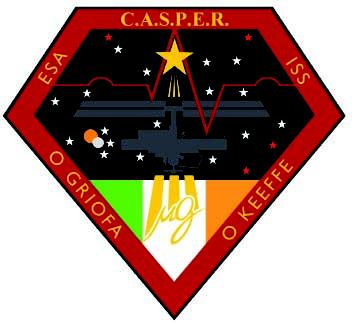| 2006 |

|
YEAR BOOK |
University of Limerick
|
Project CASPER
|

Biopotentials are fundamental to life. You can view these signals by placing measurement electrodes on any part of the body and then observing the results on a voltmeter. A lot of information about the health of living things can be derived from these signals (eg. heart activity - ECG). One application of biopotential analysis is sleep quality assessment. Sleep disruption is a common and important problem in space flight. There is a wide range of environmental and therapeutic interventions which could ameliorate the negative effects of space flight on sleep, and several new interventions are being investigated. However, the current reality is that we are unable to adequately assess these countermeasures, as traditional polysomnographic equipment is unsuitable for the spaceflight environment. Project CASPER (Cardiac Adapted Sleep Parameters Electrocardiogram Recorder) provides a simple and accurate means of detecting sleep parameters and disturbance by assessing cardiac autonomic activity from an electrocardiogram (ECG).
Project CASPER provides an efficient method of monitoring and cataloging incidents of disturbance and instability during an astronauts sleep period, based primarily upon the ECG activity. These measurements are provided by existing hardware in the form of a fitted, adaptable and available physiological monitoring system (Vivometrics LifeShirt [2]). In tandem with a specialised "sleep diary" and diagnostic programme, these individual tools provide the clinician with both objective and subjective data. This culminates in an ideally practical, portable and non-invasive system called CASPER which will monitor and record sleep disruption and instability, which is specially adapted for the microgravity and space flight environment.
Project CASPER has been selected by the European Space Agency (ESA) to fly onboard the International Space Station in 2006. The project has many national and international partners including: ESA, Enterprise Ireland, NASA, University College Dublin and Harvard University. The project researchers are Dr. Marc O'Griofa and Dr. Derek O'Keeffe.
References:
[1]. http://www.ul.ie/~bel
[2]. www.vivometrics.com
Contact: Dr Derek O'Keeffe,
Biomedical Electronics Laboratory,
ECE Department,University of Limerick,
E-mail: [email protected]